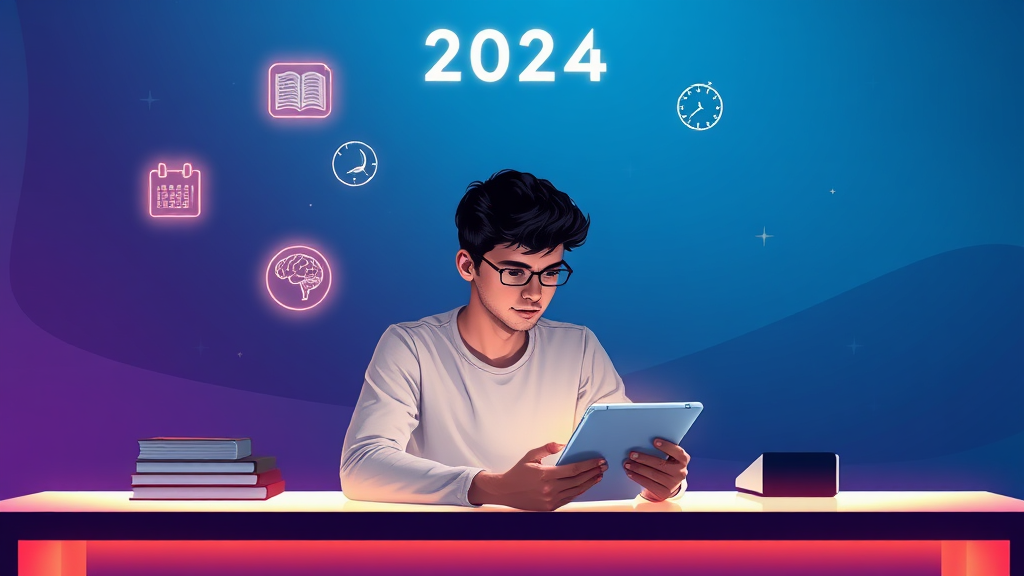
Staying ahead in today’s fast-paced academic environment requires more than just intelligence and hard work. It’s all about finding the right strategies to retain information and perform well consistently. Whether you’re in high school, college, or even pursuing continuing education, the right methods can transform your learning experience. If you’ve been wondering how to supercharge your academic performance, this guide will walk you through the most effective study techniques for students 2024. Get ready to boost your productivity and make the most of your study time.
Why Modern Students Need Effective Study Techniques
Education in 2024 is vastly different from what it was just a decade ago. The rise of digital platforms, online learning, and AI-powered tools means students have access to countless resources. However, all these options can quickly become overwhelming. Without structure and effective study habits, it’s easy to get distracted or waste time on inefficient methods.
Moreover, as coursework becomes more competitive and time-consuming, mastering efficient techniques isn’t just helpful—it’s essential. Learning how to study smarter, not harder, is a mindset that can serve you long after your school years.
Top Effective Study Techniques for Students 2024
Here are some of the top recommended methods tailored for today’s learners. Each strategy is designed to maximize focus, retention, and recall, helping students optimize their academic performance.
1. Active Recall: Engage Your Brain
Active recall is one of the most powerful memory techniques available today. Instead of simply rereading notes or watching lessons, this method encourages retrieving information from memory—forcing your brain to work harder and remember better.
How to practice active recall:
- Use flashcards (physical or apps like Anki and Quizlet)
- Test yourself without looking at notes
- Write what you remember after studying a topic
Students using this method often outperform peers who rely solely on passive review techniques.
2. Spaced Repetition: Study Over Time
Spaced repetition is closely linked to active recall. It involves reviewing material at strategic intervals over days or weeks. This gradually strengthens neural connections, helping students retain information longer—even months after the exam.
Quick tips:
- Spread out review sessions over several days
- Use tools like spaced repetition apps for scheduling reviews
- Combine with active recall for even better results
This is one of the most effective study techniques for students 2024 because it aligns with how memory works best.
Follow our social media to get an daily update!
3. Pomodoro Technique: Focus in Short Bursts
Staying focused for long hours can be mentally draining. The Pomodoro method helps manage time by dividing study into focused intervals—typically 25 minutes—followed by a short 5-minute break. After four sessions, take a longer break of 15 to 30 minutes.
Benefits include:
- Increased concentration
- Reduced mental fatigue
- Improved time management
Pomodoro is perfect for students juggling multiple subjects or tasks.
4. Interleaved Practice: Mix Subjects to Improve Learning
Instead of studying one topic for hours, mix different subjects or problems within a single session. Known as interleaving, this method improves your ability to distinguish between different concepts and apply what you’ve learned in varied situations.
Example: Mathematics students can switch between algebra, geometry, and calculus in one session rather than focusing on only one topic.
This technique builds mental agility and boosts exam readiness.
5. Digital Tools and Apps
Modern learners have access to a wide range of study tools. In 2024, utilizing these resources is essential for staying competitive. Consider integrating the following into your routine:
- Anki: For spaced repetition flashcards
- Notion or Evernote: For organized note-taking
- Forest App: To beat phone distractions
- Google Calendar: For scheduling study blocks
These tools are not just novelties—they’re valuable aids in maintaining consistency and tracking progress.
Key Habits for Improving Study Efficiency
Effective study techniques for students 2024 go beyond learning methods. Your everyday habits significantly influence your academic success. Here are essential practices you should adopt:
Maintain a Healthy Sleep Routine
Cognitive performance is deeply linked to sleep quality. Aim for at least 7-8 hours of sleep per night to enhance memory consolidation and focus. Pulling all-nighters might seem productive, but they hinder long-term progress.
Create a Dedicated Study Environment
Studying in a consistent, distraction-free zone signals your brain it’s time to focus. Choose a well-lit area, remove clutter, and keep essential materials close at hand. Noise-cancelling headphones or white noise apps can help maintain concentration.
Set Clear and Realistic Goals
Breaking your workload into manageable goals keeps your motivation high and progress visible. Instead of planning to ‘study all day,’ aim for specific targets like ‘complete two chapters and review notes.’
Teach What You’ve Learned
Explaining concepts clearly to others—or even to yourself—forces deeper understanding. This method, inspired by the Feynman Technique, reveals gaps in your knowledge and reinforces learning.
Adapting Study Techniques for Different Learning Styles
Students learn in a variety of ways—some visually, others by listening or doing. Understanding your preferred learning style helps you choose the right techniques.
- Visual learners: Use diagrams, mind maps, infographics
- Auditory learners: Record audio notes or listen to educational podcasts
- Kinesthetic learners: Apply real-life examples or practice problems
There is no one-size-fits-all. Exploring different methods is crucial until you find the combination that works best for you.
Balancing Study with Self-Care
Burnout is a real threat, especially when academic pressure builds. Developing effective study techniques for students 2024 includes knowing when to step back and recharge.
Self-care strategies include:
- Including physical activity in your routine
- Staying socially connected with friends and family
- Practicing mindfulness or brief meditation
Balanced students are often more resilient, focused, and productive.
Frequently Asked Questions
How many hours should I study per day?
The answer varies by student and subject. However, 3-5 focused hours with breaks is usually more effective than prolonged, distracted sessions.
Can I use these techniques for online courses?
Absolutely. In fact, they can be especially useful in self-paced environments common in online learning platforms.
When should I start reviewing for exams?
It’s best to start early. Using spaced repetition weeks or even months before exams leads to better retention and less last-minute stress.
Conclusion: Make 2024 Your Best Academic Year Yet
Mastering the most effective study techniques for students 2024 isn’t about working longer hours—it’s about studying smarter. From active recall and spaced repetition to using smart apps and maintaining a healthy routine, the strategies shared in this guide are designed to help you learn more efficiently, retain more information, and enjoy the process along the way.
If you implement just a few of these tips into your daily routine, you’ll likely see a noticeable improvement in how you learn and perform. Here’s to achieving your academic goals with confidence and clarity in 2024 and beyond!



